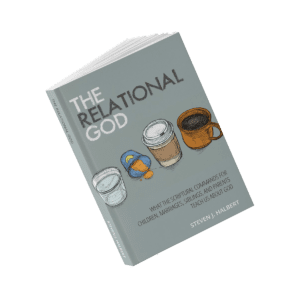Proverbs – Week 5 (Money)
I had the privilege of teaching through some of the themes in Proverbs this summer. Over a course of seven weeks, I will summarize what I learned and post it here. In true Proverbs fashion, I want to keep each of these points short, punchy, and powerful. If you hang with me for the entire seven weeks, you will notice that each of these posts are alliterative, and they employ an inclusio (opening phrase repeated at the end). These are just two of the many literary devices that Proverbs utilizes to make its wisdom memorable. This week’s truth? Wisdom with money.
The Truth in Proverbs about Money:
Proverbs has a lot to say about money. Honestly, when I began to study the theme of money in Proverbs, I half expected it to read like a Dave Ramsey book. But, after reading and categorizing all 200 verses about wealth and poverty, I was left with a very different point of view.
So, what should our attitude be toward wealth and poverty? What should characterize our desires in these areas? According to Proverbs, righteousness, justice, and wisdom (wealth of the soul) is desirable over wickedness, laziness, and foolishness (poverty of the soul). These are often contrasted monetarily (Proverbs 8:18-19) and may even lead to their financial counterparts (but not always). Thus, the wisdom from Proverbs is to practice those things which lead to wealth of the soul. In so doing, you will find contentment in whatever financial situation you find yourself. Proverbs treats wealth and poverty with extreme honesty. Each has its blessings and each has its challenges. Regardless, we are to live with an open-handed generosity that places our trust for our financial well-being in the One who owns everything anyway.
Finding Christ in Proverbs
I believe that I read somewhere that Christ speaks more about money than any other topic. He knows that it is of immense concern to us His children. Yet what is His relationship with money? Ultimately, He seems relatively unconcerned with finances—almost apathetic—doesn’t He? He has the contentment that comes with the wealth of the soul described in Proverbs. Money is such an easy vessel for holding our trust . . . even if we only have a little. But Christ relies so fully on His heavenly Father that money holds no sway over Him. He does not let it have a foothold in His life, because He understands His own nature and how quickly it can become an idol.
In fact, He puts his finger on that very issue in many of His children’s hearts, because, as He says, “You cannot serve God and money” (Matthew 6:24). Think of the rich young ruler (Matthew 19:16-22) or the turning over of the money changer’s tables (John 2:13-16). Think of how He praises the widow as she gives her last coins in offering to a God who is bigger than her poverty (Luke 21:1-4). We are to be conformed more and more into the image of God through Christ (Ephesians 5:1-2), and that includes our attitude towards money. Christ models for us exactly what it looks like to trust so fully in God that our dependence is on Him rather than our wealth. Too often we get it backwards.
Conclusion about Money from Proverbs
How much do you depend on the security that your wealth brings?
If God told you the same thing that He told the rich young ruler (sell everything and give your money to the poor), could you be obedient?
What is keeping you from trusting God with your money and your finances?
Additional Resources
If you enjoyed this post, you may also enjoy my book on relational theology. For next steps on how to shift your dependence more fully onto your heavenly Father, see chapters 1-3 of my book The Relational God:
Additional Thoughts
This post is part of a series on Proverbs. As I teach or study certain passages and topics, I find it helpful to coalesce my thoughts into a cogent blog post.
Encouraged?
- Add your comments or questions below
- Share this post using the share-buttons at the top right of this post.

